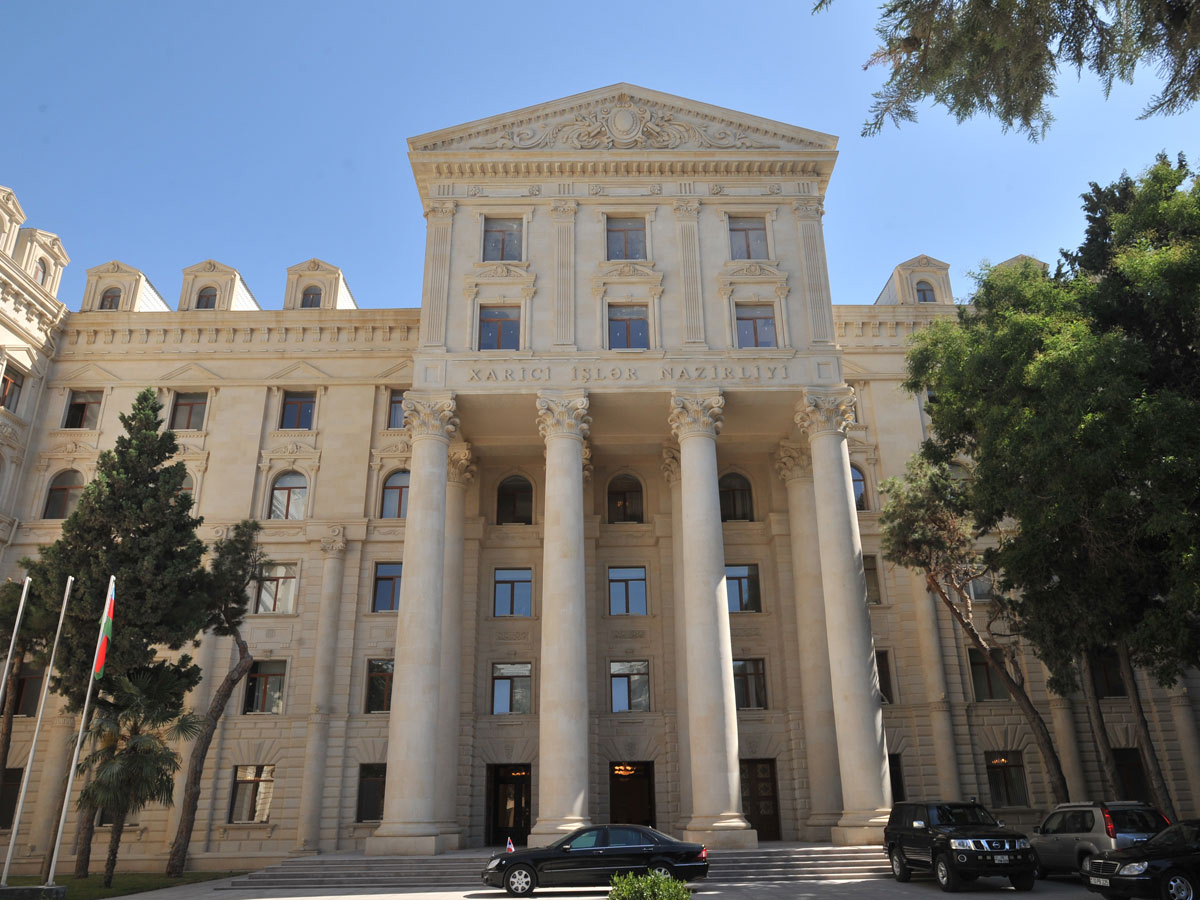Baku, Azerbaijan, Apr. 18
Trend:
A demonstrative refusal of Armenia to return the body of an Azerbaijani soldier, despite previously reached agreements, is a flagrant violation of international humanitarian law, in particular the Geneva Convention and the provisions of additional protocols, Azerbaijani Foreign Ministry Spokesperson Hikmat Hajiyev told Trend Apr. 18.
Earlier, the Azerbaijani State Commission on Prisoners of War, Hostages and Missing Persons said that the Armenian side is refusing to provide information about the missing Azerbaijani serviceman, warrant officer Seymur Bakhishov. The commission said Armenia does not take appropriate steps for return of the soldier.
Despite the agreement reached earlier to hand over the dead body of an Azerbaijani serviceman, Armenia's subsequent refusal in this issue shocked the mediators from both sides of the frontline, the defense ministry said earlier.
"Being far from human values, Armenia exposes bodies to torture and abuse, turns them into objects of revenge and political speculation," Hajiyev said.
Despite the confirmation of the fact that an Azerbaijani soldier's body remains in Armenia by the international organizations performing the mission on the bodies' return, it is impossible to understand their silence following Yerevan's refusal to return that body, Hajiyev said.
International organizations should take a principal and clear stance in such issues, he said.
Hajiyev reminded that as a result of Armenia's inhuman actions, over 4,000 Azerbaijani civilians and servicemen captured and held hostage during the 1991-1994 military operations are still considered missing.
Meanwhile, according to deputy prosecutor general, military prosecutor of Azerbaijan, Khanlar Valiyev, Armenian armed units desecrated the dead bodies left on the battlefield during the provocation on the frontline on Apr. 2-5.
On the night of April 2, 2016, all the frontier positions of Azerbaijan were subjected to heavy fire from the Armenian side, which used large-caliber weapons, mortars and grenade launchers. The armed clashes resulted in deaths and injuries among the Azerbaijani population. Azerbaijan responded with a counter-attack, which led to liberation of several strategic heights and settlements.
Military operations were stopped on the line of contact between Azerbaijani and Armenian armies on Apr. 5 at 12:00 (UTC/GMT + 4 hours) with the consent of the sides, Azerbaijan's Defense Ministry earlier said. Ignoring the agreement, the Armenian side again started violating the ceasefire.
The conflict between the two South Caucasus countries began in 1988 when Armenia made territorial claims against Azerbaijan. As a result of the ensuing war, in 1992 Armenian armed forces occupied 20 percent of Azerbaijan, including the Nagorno-Karabakh region and seven surrounding districts. The 1994 ceasefire agreement was followed by peace negotiations. Armenia has not yet implemented four UN Security Council resolutions on withdrawal of its armed forces from the Nagorno-Karabakh and the surrounding districts.






